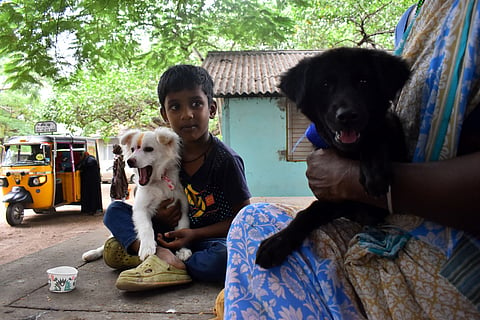

THIRUVANANTHAPURAM: The Animal Husbandry Department has decided to address the underreporting of rabies cases in animals by making carcass testing easier and safer.
Veterinary surgeons will now be trained to extract a small portion of the brain from deceased animals for testing, removing the need to transport entire cadav.
Currently, the department operates five rabies diagnostic centres across the state. Farmers often face logistical challenges, transporting the entire carcass from remote areas to regional labs. In the case of large animals like cows, only the head is typically brought in for testing, a process that can be both costly and cumbersome.
Close to 400 carcass samples have been tested in these labs this year. Among the 254 dog samples tested, 114 were found to be rabid. This year alone, rabies has contributed to 19 human fatalities, prompting veterinarians to believe that many animal cases go unreported. By streamlining the testing process, the department hopes to encourage more people to initiate testing rather than disposing of carcasses.
“The rabies virus travels through the nerves to the brain. So, the brain stem samples provide an accurate diagnosis,” said Dr Aparna S, a Veterinary Surgeon specialising in Microbiology.
“Farmers can now easily transport samples in a small container, eliminating the hassle of moving an entire carcass. Currently, field diagnoses often rely on visible symptoms, which may accurately identify furious rabies cases but may miss the less obvious, dumb form of the disease. This oversight typically becomes apparent only when a rabid animal infects humans within the household," Dr Aparna said.
To address these issues, the State Institute of Animal Diseases (SIAD) in Palode launched a state-level training programme on October 4.
As many as 25 selected veterinarians in Thiruvananthapuram were given training to collect the samples from the region connecting the neck and the brain (Foramen Magnum region) and pack the samples in a triple layer cover maintaining the cold chain.
J Chinchurani, Minister for Animal Husbandry and Dairy Development, inaugurated the programme and said the training should be given to veterinarians in all the districts to ease the difficulties people face in rabies testing. Dr Sheela Saly T George, Chief Disease Investigation Officer, said that the training to collect the brain stem of the dead animal will be centred around all regional laboratories.